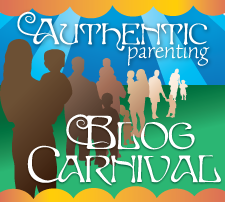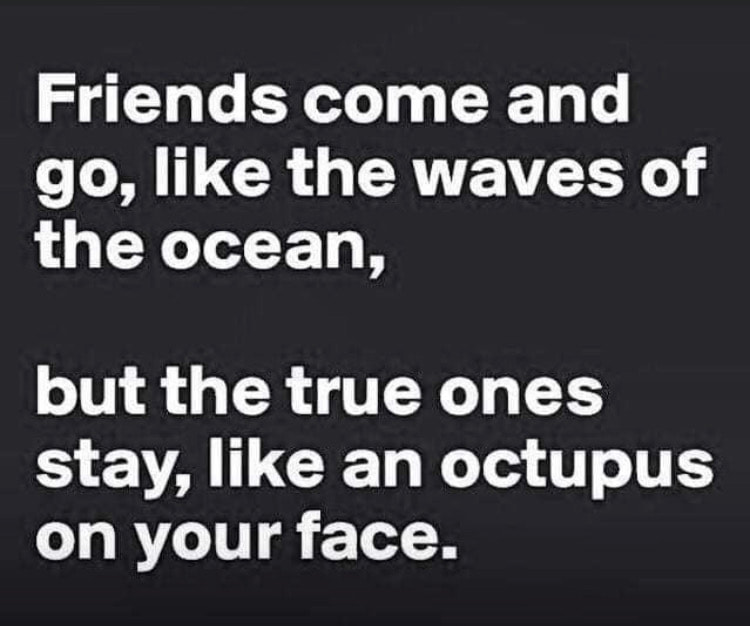|
I hurt someone I love with one of my "out-there" ideas. It wasn't my own writing but an article titled, Your Child does NOT Thrive on Routine, that I posted on Facebook. The first time I read this article it resonated strongly with me on a personal level. But when one of my favorite people and best friends shared her sadness in reaction to the piece, it made take another look. How did I miss that this article had the potential to offend? Recently I read an article titled, "Babies Are Needy—Does That Bug You? Maybe get a dog instead of a baby." This article is also very blunt in its presentation, yet its core message resonated with me. After reading a lot of the comments I saw how many people were hurt by it and decided not to share. (If you're really curious I can send you the link.) Presentation does matter. Mayim Bialik's new book, "Beyond the Sling" advocates similar parenting choices BUT with a totally different tone. Tone matters. Words have power. Part of the reason I didn't think much of posting this article is that it seems to be about a somewhat benign topic: "Routine." Compared to other controversial parenting topics like breastfeeding, vaccinations, co-sleeping, spanking, and homeschooling, it seemed pretty safe. But "Routines" (aka schedules) are as accepted and entrenched in our culture as anything else, and in this case was code for school (or daycare for the younger child). Also the use of the the words "Your Child" make it very personal, giving it more power. This is why I try to be very careful with the words that I choose. For example I write here about MY TRUTH, and what works for me and my family. I wonder though, would the author's point have been as powerful without the strong language? Which style is more likely to actually make an impact and be heard: powerful but possibly offensive, or a more subtle, hopefully compassionate approach with less "oomph"? I'm finding that as I try to share my truth without hurting/offending/judging, it can be difficult to do since my reality is so different from most people I know. But let me backtrack for a minute. Let me explain why I liked the article to begin with. I've recently been thinking about my kids and how we've for the most part never really had a "schedule". There have been times when we got into a certain flow that seemed to stick for a while, but routines or schedules have never really worked for us. I used to think that it was Marisol who broke me into this kind of a lifestyle. But lately I've been delving more into *me* and I've realized that *I* am the one who is just not very "routine". I just didn't really know it since I had always had routines and schedules my whole life - until my kids joined me. It was the classical case of mistaking correlation (the arrival of Marisol and my lack of schedule) for causation. Now, I'm not saying that Marisol is prone to an orderly day (or night!) either. I'm just noting that I am as much the cause as she is. I also agree with the author's assessment of children thriving on predictability and familiarity, that these two things lower stress, and that routines, schedules and school are not the best ways to achieve these things. Let me go on a little "school tangent". I realize now that I've been "hiding" behind some words when I talk to people about homeschooling my kids. I say, "I loved school! It was great for me. I'm not homeschooling because I have something against school, I just see a better way for us." Now, these words are true. I'm not lying when I say them. But they are a buffer of sorts - it puts the people I'm talking to at ease. But another truth is that the more I inspect and reflect on my own experience as student AND teacher, the more I see wrong with school. I will begin by critiquing myself. Because that's what I like to do (ok, well I'm trying to get away from that, but for now to make this point I will. And it's about my past self, not my present self). One very strong memory I have of school - and this was high-school - was of my teachers (and mom's friends - my mom was my math teacher in the 9th and 12th grade) ooohing and ahhhing over my report cards. Teachers LOVE those 99.99% GPAs. And my reaction? "Well, isn't that the GOAL?" To get 100%, I mean. HOLY ARROGANCE! I am ashamed to admit that is what I thought. In my defense, it wasn't completely my fault - I mean that is what we are taught - to get the right answers and the high grades. But it ignores so many other factors - like different learning styles, and kids that are really smart (ALL OF THEM!) but don't care about grades (I have so much respect for those types now!), and people that just aren't interested in what x + y equals, or what day the Battle of Gettysburg took place. Not to mention not everyone can memorize hundreds of unrelated facts and regurgitate them on command. As for me, "school-smarts" and "know-it-alled-ness" run in my family - thankfully so to kindness and the ability to think critically (aka change our minds!) So yes, school was good to me. Or I should say, school and I were a good fit. I was lucky. I excelled in many areas and had great friends. But now I see things quite differently. In particular the competition. Even back then, I never liked it. I hated when my classmates celebrated when they "beat me" on an exam. I was embarrassed by teachers who made sarcastic remarks about me in front of the whole class. I ignored my body to come to school when I was really sick so I wouldn't "let my team down" by missing a game (how well could I have played??) I both suffered from and participated in middle school cruelty. These are just a few of the experiences that immediately come to mind. The truth is, the school environment is tough for many kids and there are negative aspects for everyone. School does NOT foster critical thinking, creativity, individuality, cooperation, flexibility, questioning, pursuing passions, or success for all. (There may be exceptions, but for most I believe this is true. I'm speaking as a teacher now too.) These are things that I value. All of this is part of the benign and what most think of as beneficial "routine" of being part of school. It may seem like I've made quite a leap here, but this is where my mind went yesterday. ~~~~~~~~~~~~~~~~~~~~~~~~~~~~~~~~~~~~~~~~~~~~~~~~~~~~~~~~~~~~~~~~~~~~~~~~~~~~~~~~~~~~~~~~~~~~~~~~~~~~~~~~~~~~~~~~~~~~~~~~~~~~~~~~~~~~~~ Back to my friend. My reaction to my friend's sadness was very emotional. I felt sad too. The feelings manifested in my body - a hard ache in my heart, eyes stinging, a sick pit in my stomach. I wanted to be able to vomit all the words running through my mind into this post in one big purge. I want my friend to see my heart and know my intention. Besides the emotions my thoughts ran wild. Everything rushed in and around my head and every idea was connected to that moment. Every idea I've ever had seemed to relate. It was close to impossible to untangle it all and make sense of it. So, am I really ready to share my truth? I thought I was. Also, this is what I wanted right? To make people think and question? I reminded myself of some things. First, I am really starting to accept deeply that we each own our emotions. No-one makes someone else mad, or angry, or sad. We are in control of ourselves. Second, I reminded myself of the "Purple spots". I've heard this now from two different sources, Tara Wagner and Louise Hay. If someone came up to you on the street and told you that you had purple spots all over you and you had better get to the emergency room quickly, what would you do or say? How would you respond and react internally? (Assume you just left your house and gave yourself a once-over in the mirror - you *know* there are no purple spots!) Chances are good that you would not get angry or upset. You might even be more than a little concerned for the other person (Helloooo, someone's had some purple kool-aid!) How does this apply to every day situations? Well, if you notice that you are bothered by something that someone has said to you, then that means on some level you believe what they are saying. I would only freak out about purple spots if I really thought they were there! An example: your husband tells you to get off your lazy butt to get something for one of your kids. You get really pissed off. Why are you mad? If it's not true, there is nothing to get upset about, and if it is true then you can simply make your decision accordingly (although that really wasn't a nice way for your husband to talk to you - you probably need to work on your communication!) Seriously, I've seen how this works for me. When I'm feeling good about myself and life I don't take things personally. When I do get upset, it is time to look internally.
How this applies to me personally is that many of the choices we've made in our family (nursing an almost 3 year old, homeschooling, co-sleeping, our use of media, to name a few) are judged very harshly. I know; I read the comments (even though I know I shouldn't!) But I cannot take them to heart or feel saddened by them because I know what they are saying about me (my choices) is not true. Usually there are very, VERY big misunderstandings at the heart of the hurtful comments. Let me be clear: I am not saying that we should not be aware of how our words and actions affect others. What I am saying is that if something bothers you that is your cue to look inwards (this seems to be a recurring theme!) I am not so naive to believe that it is possible for everyone to home-school or stay home with their small children. But I *do* believe that many more people could make different choices if they wanted to. Maybe not the BIG one - like quitting your job today. But smaller ones. And as smaller choices are made, different paths become easier and more attainable. Feeling like you have no choice is an illusion. I also am very aware that it was relatively easy for me to jump onto this unconventional path. The choices we made early in our "parenting path" and even leading up to having children made it easier for us than it is for many. I am so lucky to have an extremely supportive, intuitive partner. Somehow we are evolving together with seemingly little effort (also not typical!) For us finding our way has been a natural progression - for others who want to break away from our cultural routines, it may look more like an abrupt break. I believe choices are best made with eyes wide open and with knowledge of alternatives. I believe this is where defensiveness often rises up in us. If we acknowledge there are options then we are left with the (often) uncomfortable truth that what we have been choosing may not be the only or best way. In the case of school - sure maybe school (routines) work for some children and families, but does it for most? And is it the best way? If parents can honestly answer, yes - their child/ren is/are thriving and happy and healthy, then the judgment that routines aren't good for them is irrelevant. This is part of listening, really LISTENING to yourself and your loved ones, including your kids. When your kids complain about not wanting to go to school (or dance class!) how do you respond? "Oh, you love it - once you're there I can't get you to leave," or "All your friends are in school," or "Sometimes we have to do things we don't want to," or "Do you think I want to go to work everyday?" Naomi Aldort once said something to the extent that children are capable of adjusting and even appearing happy in almost any circumstance. She asserts that indeed children are wise to make the best of whatever their situation is. Children are the Kings and Queens of "Being" - they only know how to live in the moment. This is why they may appear to "get over" what they told you they were unhappy about. They know they don't hold the power in their lives, so they let go. We could learn a lot from children. Finally I want to address the "judgmentalness" of the original article. This also seems to be a topic I continually grapple with. Here is what I have decided: I AM JUDGMENTAL. Can I finally just own this? Or every time I notice it do I take note and then actively choose something else? Is it possible to make life-choices so mindfully and differently and NOT be judgmental? If it is, then it definitely is going to take a lot of practice for me. Luckily, I don't believe I come off as judgmental because I am also loving, kind, and generous. And slowly I am learning to keep my mouth shut. I constantly remind myself of what I truly believe, "We are all doing the best we can with the tools and knowledge we have." I can also connect to the feelings of others, even when I do not agree with their methods. Frustration, stress, anger, impatience - these I can relate to and have compassion for. No one wants to feel that way. I've seen a lot of examples this week of parents really losing it with their kids. Usually it is about behavior that just seems pretty normal. To me the parents look like the jerks, not the kids. But I feel bad for both of them. I admit I'm still not sure what to do in these situations and usually don't do much at all. I'm hoping to get better at offering loving support in scenarios like those. For now I'm trying to be a living example of the ideals I hold dear. I see it in the little things - a friend who was uptight about her kids wearing their shoes in the park last summer has decided this year to let them roam free and barefoot (my kids and I are such bad influences!) And I'm reminded by the big things, namely death, that our daily choices do matter because they are what ultimately make up our life. I'm learning to bare it all here where it is relatively safe and non-confrontational and I still have my coping mechanisms for "real life" - Like, don't read the comments, don't look directly at people when I'm uncertain of their reactions, or saying, "I loved school!" Someday when I'm really confident maybe I'll just look right in the eyes of another mama and smile.
2 Comments
Leave a Reply. |
Susan MayWife, mom, information and peace seeker. Categories
All
Archives
November 2023
|
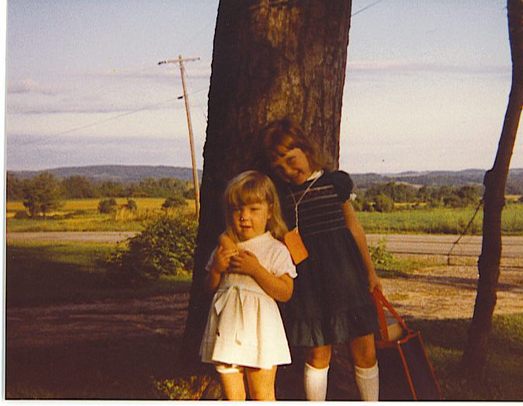

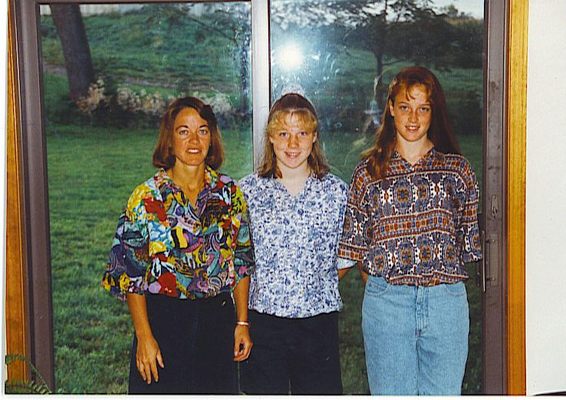

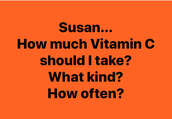
 RSS Feed
RSS Feed
